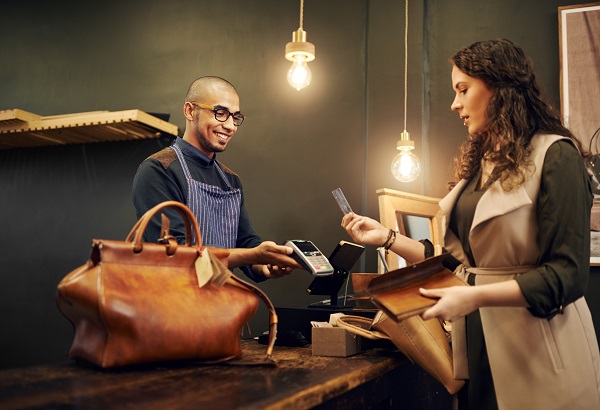
It’s Saturday night and you’re eating out at your favourite restaurant. Your server has been friendly and attentive all evening, so of course you’re happy to leave a tip. But how generous are you feeling, exactly? That depends, say our colleagues from eZonomics.
Did she squat down when she took your order? Closer proximity and increased eye contact can build rapport – and studies suggest you’re likely to up your tip by around three percentage points, from say 12% to 15% of the cost of the food.
Did she write “thank you” on the bill? You’ll reward her friendliness with two percentage points more than normal. A smiley face could add five (although this method backfires for male servers, apparently). And if she introduced herself by name at the start of the evening, you’re likely to leave eight percentage points more than you ordinarily would.
Sunny mood
But even seemingly random factors like the weather can affect how much you tip. Economists analysed data from millions of taxi rides and found that tips were higher when it was sunny. “Sunny days could subconsciously prime a positive mood that increases the need to tip,” the researchers suggest.
Of course, you might well wonder where the concept of tipping came from in the first place. From an economic point of view, giving money away when we’re not compelled to, especially if we don’t plan on coming back (and therefore have no need to secure good service the next time), is fairly irrational, after all. One theory is that it originated from British coffee houses in the 1700s, where customers who wanted special service dropped coins into boxes labelled TIP – “To Insure Promptness”.
Local customs
This then spread throughout Europe and by the late 1800s, affluent Americans who had been to Europe and had to tip there, started tipping in the USA to show they had been abroad and were familiar with European customs. More recently, frequent travel to the USA – where service charges are now ubiquitous, from taxi drivers to tour guides – is thought to be fuelling the trend for tipping across the globe.
Nations with higher altruism levels tend to tip more, suggesting there is a selfless element to tipping too. Studies have found that printing altruistic quotations like “A good turn never goes amiss” on bills, or playing songs with pro-social lyrics increases both the frequency of customer tipping and the amounts they leave.
While tipping might be hard on the wallet, it’s good for your mood: brain scans show that activity in the part of the brain linked to generosity triggers a response in the happiness part. Enjoy the sun and tip away!









